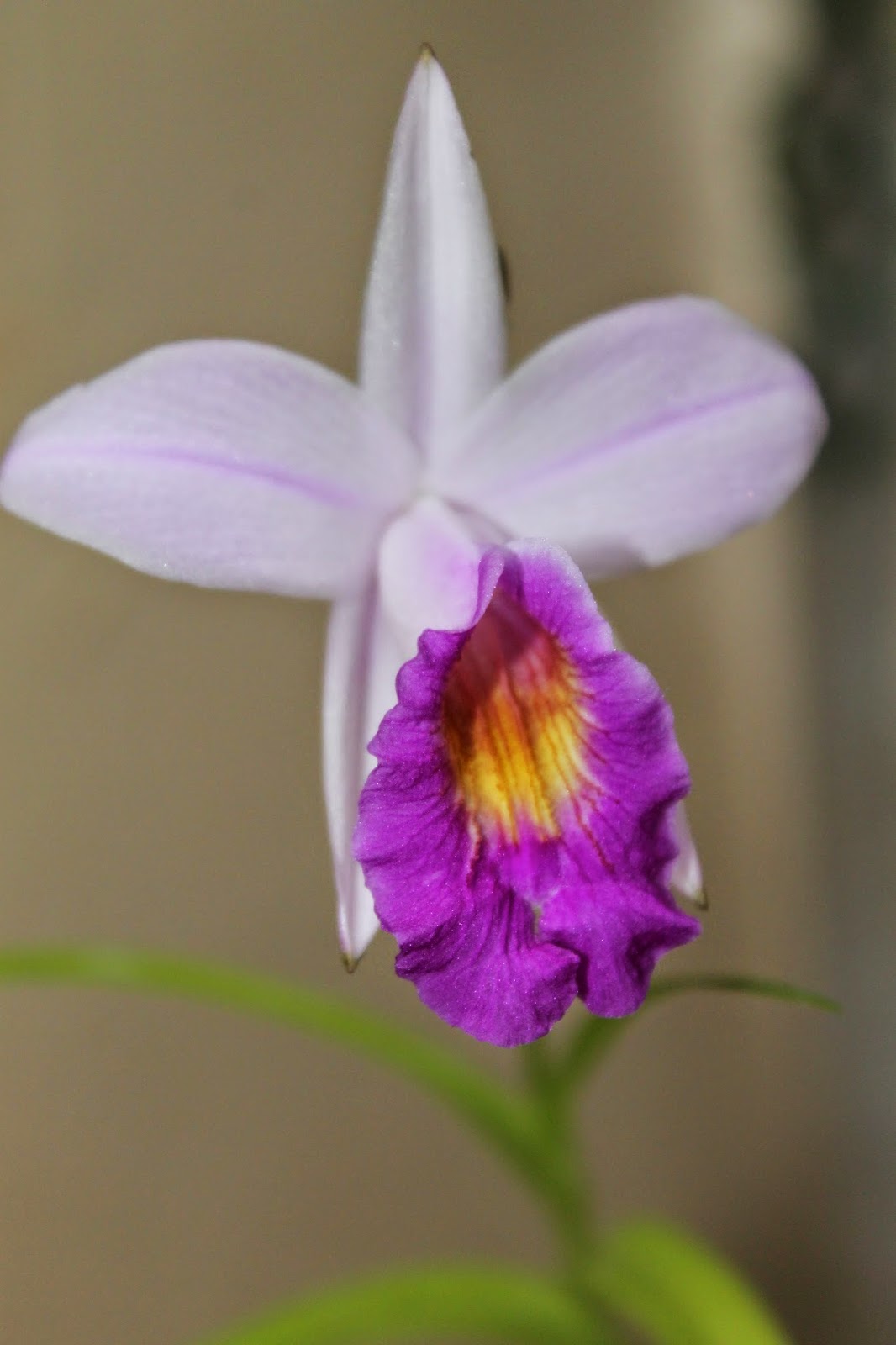Arundina graminifolia [D Don] Hochr. 1910
Common Name: The Grass-Like Leaf Arundina -
The Bamboo Orchid
Rhizome of Arundina graminifolia is used in
extraction of certain anti-viral/anti-bacterial compounds. Flowers and stem
extract is used in Chinese medicine as anti-cholesterol compound.
Distribution
& Occurrence:
Many parts of south east Asia at various
altitudes
The
Plant
Giant sized (upto 2 meters) warm to hot
growing terrestrial orchid with tall and thin stems like bamboo
Blooms throughout the year on a terminal
inflorescence that carries 2 to 6 fragrant cattleya like flowers but flowers
open one at a time. Flowers are short lived
Flower color and lip shapes are extremely
variable
Cultural
Requirements and Nutrition
Grow in bright light with atleast few hours
of direct sunlight and medium should dry out soon. Water and fertilize all
around the year
Though it is a terrestrial, it should be
potted in a loose and fast draining medium. I grow in 50% charcoal and broken
tiles 50%
Pest
and Diseases
No specific pests or disease.
Hybrids
No registered hybrids
Bloomed in Oct 2014



